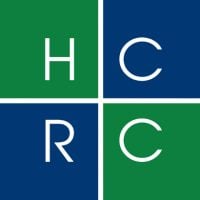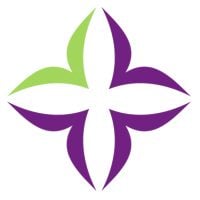Opportunity House
Drug Rehab Center in Springfield, Massachusetts
Opportunity House in Springfield, Massachusetts is a reputable treatment facility that offers comprehensive services for individuals struggling with alcoholism, opioid addiction, substance abuse, dual diagnosis, and drug addiction, providing high-quality treatment and services with CARF and SAMHSA certifications, accepting private health insurance, and offering a variety of addiction and substance abuse programs.
About This Springfield, MA Facility
Opportunity House, located in Springfield, Massachusetts, is a transitional housing program dedicated to supporting adult men in early addiction recovery. With a focus on providing step-down support for clients exiting intensive inpatient treatment, they offer specialized services for young adults and individuals with co-occurring addiction and mental health issues.
• Highly structured and supportive residential program that allows clients to focus on their recovery through intensive individual, group, and family counseling.
• Gender-specific, recovery-focused life skills training to promote sustained sobriety, addressing topics such as coping, self-care, emotional regulation, and relapse prevention.
• Aftercare services ensure a complete continuum of care, including transitional support for clients stepping down to outpatient treatment, employment and housing assistance, vocational and academic training, and referrals for additional medical, mental health, and social service programs.
Opportunity House is accredited by CARF and accepts private insurance, sliding scale payment schedules, and self-pay, with financial aid available. The supportive housing environment assists clients in developing essential independent living skills, with training provided in areas such as parenting, financial and household management, and job readiness.
The facility specializes in treating alcoholism, opioid addiction, substance abuse, dual diagnosis, and drug addiction. They offer a comprehensive range of services, including aftercare support, drug rehab, dual diagnosis treatment, inpatient programs, sober-living/halfway houses, outpatient care, detoxification, and residential levels of care.
Genders
Ages
Modality
Additional
Accreditations
SAMHSA

CARF
The Commission on Accreditation of Rehabilitation Facilities (CARF) is a non-profit organization that specifically accredits rehab organizations. Founded in 1966, CARF's, mission is to help service providers like rehab facilities maintain high standards of care.
Conditions and Issues Treated
Using both legal medications and illegal substances in order to maintain an addiction is substance abuse. Illegal substances can become addictive after a single use. If you are obtaining legal medications illegally, you may be suffering from substance abuse.
Fortunately facilities like Opportunity House in Springfield, MA are here to help.
Opioid addiction treatment facilities in Massachusetts, like Opportunity House cover both illegal and prescription opioids abuse. Most plans include detoxification and subsequent medications to ease the process. Behavioral therapies and counseling are also necessary to resolve the root cause of addiction.
When someone in Massachusetts struggles with both addiction and mental or emotional illness, this is considered a dual diagnosis. Dual diagnosis treatment can include emotional trauma, bipolar disorder, schizophrenia, depression. Getting treatment for these issues must occur at the same time to treat either of them effectively.
Levels of Care Offered
This center offers a variety of custom treatment tailored to individual recovery. Currently available are Aftercare Support, Detox, Drug Rehab, Dual-Diagnosis, Inpatient, Outpatient, Residential, Sober-Living / Half-Way, with additional therapies available as listed below.
A detox program helps the person physically withdraw from drugs and helps them track their progress. So, suppose the person isn’t ready for sobriety (or relapses). In that case, the treatment professionals can catch it early and help re-orient them towards recovery.
In order to focus on the psychological aspects of addiction, one must first address the physical symptoms of withdrawal.
Withdrawal symptoms can be painful, even fatal, so managing the detox process carefully is critical. Severe withdrawal symptoms are often treated with more advanced pharmaceutical interventions. Nausea and headaches are common side effects of detoxification.
Inpatient rehabilitation aims to treat severe addictions and co-occurring disorders. Depending on individual requirements, the duration of the stay at Opportunity House ranges from four weeks to six months. Massachusetts inpatient recovery guarantees that the patient resides in an environment free of drugs.
A sober living home in Springfield, MA, also known as an SLH, is much like a halfway house. It is halfway between a drug or alcohol treatment facility and living at home. There are some specific rules and regulations residents must follow, like attending mandatory meetings, and household chore-type activities.
Residential treatment programs are those that offer housing and meals in addition to substance abuse treatment. Rehab facilities that offer residential treatment allow patients to focus solely on recovery, in an environment totally separate from their lives. Some rehab centers specialize in short-term residential treatment (a few days to a week or two), while others solely provide treatment on a long-term basis (several weeks to months). Some offer both, and tailor treatment to the patient’s individual requirements.
Treatment for substance abuse does not cease after an individual successfully completes a detox or rehabilitation program. A vital follow-up treatment service is aftercare support provided to individuals at Opportunity House in Massachusetts after they attain initial sobriety.
Aftercare support often takes the following forms: 12-Step Programs, Outpatient Treatment Programs, and Support Groups. The most effective aftercare programs are tailored to meet an individual’s specific needs and circumstances.
Opportunity House‘s Therapies & Programs
Treatment programs include individual therapy for the greatest chances of success. Customized individual therapy is counseling involving you and your Opportunity House counselor. Individual therapy leads to greater peace and understanding about your triggers for addiction.
When family members are more proactive and involved in the treatment procedure, it encourages the patient to advance his or her progress. Moreover, it shouldn’t be ignored that genetics play a role when it comes to addiction, so it’s better to approach the problem as a unit. Also, with proper education, family members can help an individual avoid addiction triggers and guide him or her in making lifestyle changes necessary for his or her sobriety.
It has been said that unhealed trauma is the root of most addictions. Trauma therapy is a way of addressing trauma while in a safe situation in order to heal. Healing past traumas and introducing coping strategies are strong foundations for sustained recovery from addiction. This may involve individual or group counseling or both, in a Springfield, MA facility. Other forms of therapy have been proven to assist in healing past traumas.
Cognitive Behavioral Therapy (CBT) is a type of psychotherapy that focuses on the underlying thoughts and behaviors that caused the problem of addiction in the first place and may cause a relapse. Negative feelings are common in substance abuse disorders, and if not recognized, they can cause co-occurring disorders.
CBT involves strategies that help to change the thinking and behavioral pattern by cognitive restructuring. In simple terms, it helps to remove negative thoughts and provides long-term benefits. Also, CBT promotes self-awareness, self-control, and healthy ways to respond to negative thoughts. It can be administered as a mono-therapy as well as a part of combination therapy.
In the midst of an addiction certain healthy habits and behaviors can be forgotten or discarded altogether. While in treatment you will learn life skills that will help you successfully maintain sobriety and rebuild your life in Springfield, MA. Some examples of this are time management, social skills, nutrition, hygiene, stress management and taking care of yourself.
The 12-step program is a part of substance abuse treatment. In this program, peers help each other to achieve the goal of abstinence. It was initially developed by the founders of Alcoholics Anonymous. Due to its huge success, the 12-step program is included as a part of other substance abuse treatments.
The 12 steps guide at an individual level. It begins with the individuals accepting that they are addicts, and they understand its consequences. It is followed by focusing on the recovery process and making amends for hurting others. The program provides the benefit of cognitive restructuring, which refers to the process of change in the negative thoughts that leads to long-term benefits.
Payment Options Accepted
For specific insurance or payment methods please contact us.
Is your insurance accepted?
Ask an expert, call (888) 674-0062
Additional Details
Specifics, location, and helpful extra information.
Springfield, Massachusetts 01109 Phone Number(413) 739-4732 Meta DetailsUpdated April 15, 2024
Staff Verified
What else do people call Opportunity House?
People have occasionally also searched for “Behavioral Health Network - Opportunity House in Massachusetts”
Patient Reviews
There are no reviews yet. Be the first one to write one.
Springfield, Massachusetts Addiction Information
Massachusetts has one of the highest rates of drug abuse in the country. More than half a million Massachusetts residents abuse alcohol while more than 1.5 million use illegal drugs each year. This drug and alcohol usage is the cause of over 8% of all deaths in the state. In 2017, Massachusetts ranked in the top 10 of the states with the highest opioid overdose rates.
In Springfield, MA, there were 607 opioid-related overdose deaths in 2016. That's a rate of 24.8 per 100,000 people, which is more than three times the national average. Opioids remain the main driver of drug overdose deaths. Inpatient rehab programs in Springfield, MA, consist of a schedule of rigorous physical exercise and a strict drug and alcohol-free lifestyle for the duration of the stay.
Treatment in Nearby Cities
- Southbridge, MA (27.8 mi.)
- Palmer, MA (13.0 mi.)
- East Brookfield, MA (28.2 mi.)
- North Attleboro, MA (63.3 mi.)
- Tewksbury, MA (76.7 mi.)
Centers near Opportunity House
The facility name, logo and brand are the property and registered trademarks of Opportunity House, and are being used for identification and informational purposes only. Use of these names, logos and brands shall not imply endorsement. RehabNow.org is not affiliated with or sponsored by Opportunity House.





